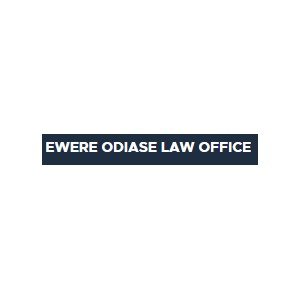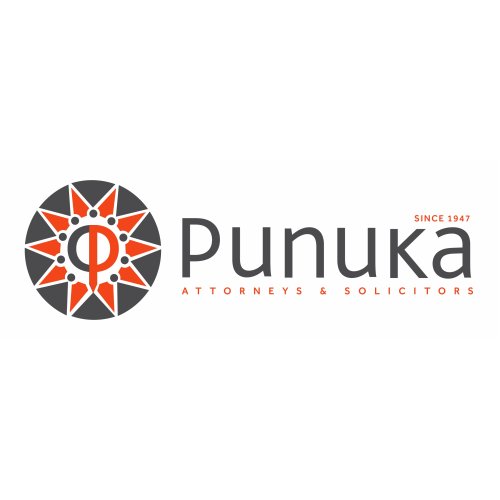Best Structured Finance Lawyers in Asaba
Share your needs with us, get contacted by law firms.
Free. Takes 2 min.
List of the best lawyers in Asaba, Nigeria
About Structured Finance Law in Asaba, Nigeria
Structured finance is an advanced financing technique that allows individuals, companies, and governments to pool financial assets and transform them into securities. This field involves complex legal and financial arrangements, often to raise capital or manage risk. In Asaba, the capital city of Delta State, Nigeria, structured finance is commonly used by both public and private sector entities to undertake large projects such as infrastructure development, real estate investments, and energy projects. The legal framework governing structured finance here is a blend of federal finance laws, Central Bank of Nigeria regulations, and state-level policies tailored to the economic needs of Asaba and its environs.
Why You May Need a Lawyer
Structured finance transactions are highly technical and involve a range of legal issues, making the involvement of an experienced lawyer essential. Common situations that may require legal help in Asaba include:
- Drafting and negotiating complex financial agreements
- Ensuring regulatory compliance with local and national finance laws
- Managing risk and ensuring the security of parties involved
- Structuring asset-backed securities and other sophisticated instruments
- Resolving disputes arising from structured finance transactions
- Advising on tax implications and cross-border structured finance deals
- Reviewing and conducting due diligence on collateral and underlying assets
Legal representation helps protect your financial interests, reduces the risk of costly errors, and fosters transparency in dealings.
Local Laws Overview
Structured finance in Asaba is regulated primarily by national laws such as the Companies and Allied Matters Act (CAMA), the Investments and Securities Act (ISA), and Central Bank of Nigeria (CBN) guidelines. Key local aspects include:
- Compliance with Delta State legal requirements for financial transactions
- Application of the Land Use Act for real estate-backed financing
- Adherence to anti-money laundering and counter-terrorism financing regulations
- Registration of charges and securities with the Corporate Affairs Commission
- Rules set by the Securities and Exchange Commission (SEC) regarding securitization
- Procedures for dispute resolution in structured finance matters, including access to local arbitration and litigation
A lawyer familiar with both local and national finance laws ensures every legal requirement is met and safeguards your interests throughout transactions.
Frequently Asked Questions
What is structured finance and how is it different from regular loans in Asaba?
Structured finance refers to highly complex financial transactions often used for large-scale funding needs, using assets such as real estate or receivables as collateral. It differs from regular loans by involving multiple parties, special-purpose vehicles, and the creation of custom financial products.
Who regulates structured finance activities in Asaba and Nigeria?
The key regulators include the Central Bank of Nigeria, the Securities and Exchange Commission, and the Corporate Affairs Commission. Local transactions may also be subject to Delta State financial regulations.
What types of assets can be securitized in structured finance deals in Asaba?
Common assets include mortgages, loans, receivables, inventory, and real property. These assets are usually pooled together and sold as securities to investors.
What are the risks involved in structured finance transactions?
Risks include default by borrowers, legal complications, changes in regulations, taxation issues, and market fluctuations. Legal advice is crucial to identify and mitigate these risks.
Can individuals, as opposed to companies, access structured finance solutions in Asaba?
While structured finance is most commonly used by corporations and governments, high-net-worth individuals may also access these solutions for estate planning or large investments, subject to legal and financial requirements.
How are disputes in structured finance matters resolved in Asaba?
Disputes may be resolved through negotiation, arbitration, or litigation in Nigerian courts. Arbitration is often preferred for its confidentiality and speed.
What is a special-purpose vehicle (SPV) and how is it used?
An SPV is a separate legal entity created to isolate financial risk. In structured finance, SPVs hold assets, issue securities, and shield investors from certain liabilities.
What are the documentation requirements for structured finance deals?
Comprehensive documentation is essential, including loan agreements, trust deeds, security documents, SPV incorporation documents, and regulatory filings with relevant authorities.
Do local laws in Asaba require registration of security interests?
Yes, all charges, mortgages, and securities must be registered with the Corporate Affairs Commission and other relevant agencies to be enforceable and to protect lenders' interests.
How can I find a reputable structured finance lawyer in Asaba?
Seek recommendations from the Nigerian Bar Association Delta State Branch, review law firm profiles, and ensure your lawyer has specialized experience in finance law and understands local market dynamics.
Additional Resources
For further guidance or support on structured finance matters in Asaba, consider consulting:
- The Central Bank of Nigeria (CBN)
- Securities and Exchange Commission (SEC)
- Corporate Affairs Commission (CAC)
- Nigerian Bar Association Delta State Branch
- Ministry of Justice, Delta State
- Local commercial law firms with a finance law practice
- Institute of Chartered Accountants of Nigeria (ICAN) for financial advisory
Next Steps
If you need legal assistance in structured finance, begin by identifying the specific type of transaction or challenge you are facing. Gather all relevant documents and records. Next, consult a structured finance lawyer in Asaba who can review your case and offer expert guidance tailored to your needs. Remember, early legal involvement can help avoid costly mistakes and secure the best possible outcome for your transaction or investment.
Schedule an initial consultation, prepare a list of questions, and clarify the fee structure with your chosen lawyer. Stay informed throughout the process and maintain open communication to ensure your goals are met.
Lawzana helps you find the best lawyers and law firms in Asaba through a curated and pre-screened list of qualified legal professionals. Our platform offers rankings and detailed profiles of attorneys and law firms, allowing you to compare based on practice areas, including Structured Finance, experience, and client feedback.
Each profile includes a description of the firm's areas of practice, client reviews, team members and partners, year of establishment, spoken languages, office locations, contact information, social media presence, and any published articles or resources. Most firms on our platform speak English and are experienced in both local and international legal matters.
Get a quote from top-rated law firms in Asaba, Nigeria — quickly, securely, and without unnecessary hassle.
Disclaimer:
The information provided on this page is for general informational purposes only and does not constitute legal advice. While we strive to ensure the accuracy and relevance of the content, legal information may change over time, and interpretations of the law can vary. You should always consult with a qualified legal professional for advice specific to your situation.
We disclaim all liability for actions taken or not taken based on the content of this page. If you believe any information is incorrect or outdated, please contact us, and we will review and update it where appropriate.













